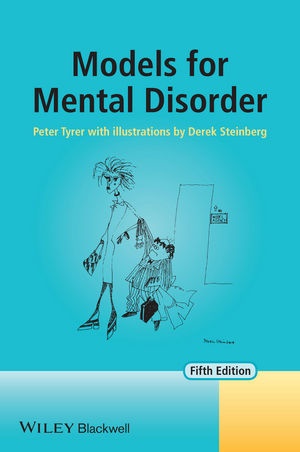Read more
Informationen zum Autor Peter Tyrer Professor of Community Psychiatry, Centre for MentalHealth, Department of Medicine, Imperial College, London, U Klappentext Models for Mental Disorder, first published in 1987, anticipated themove towards integration of psychiatric services into multidisciplinary teams(doctor, psychologist, nurse, social worker, etc) and the need to bring togetherthe different philosophies of mental illness. Peter Tyrer has identified fourdifferent models of mental disorder that are relevant to clinical practice:the disease, psychodynamic, cognitive-behavioural and social models.Each model is described and reviewed, with reference to case studies andillustrations, to show how it relates to mental health disorders and can beused to interpret and manage these disorders.The book has been widely read and is often used for training purposes so thateach professional can understand and appreciate that differences in viewpointare often a consequence of one or more models being used in a different wayrather than a fundamental schism in approach.Since the fourth edition was published in 2005, the disciplines of mental healthhave moved even closer together with the growth of assertive outreach andmore integrated community teams. This, combined with the greater awarenessof mental health among users of services, which leads to more penetrating andinformed questions at interviews with professionals, has emphasized the needfor a wider understanding of these models.* The only book to describe the models framing mental health diagnosisand management* A great review for those wanting a better grasp of psychiatric disordersand for integration of concepts for treatment planning* New information on formal classifi cations of mental disorder* New information on mindfulness and mentalization regardingthe dynamic model* Clearly written in a style which includes some humour and aconversational presentation - a joy to read for the beginner and moreexperienced practitioner alike* Features a teaching exercise for use when training students in thevarious models Zusammenfassung Models for Mental Disorder, first published in 1987, anticipated themove towards integration of psychiatric services into multidisciplinary teams(doctor, psychologist, nurse, social worker, etc) and the need to bring togetherthe different philosophies of mental illness. Peter Tyrer has identified fourdifferent models of mental disorder that are relevant to clinical practice:the disease, psychodynamic, cognitive-behavioural and social models.Each model is described and reviewed, with reference to case studies andillustrations, to show how it relates to mental health disorders and can beused to interpret and manage these disorders.The book has been widely read and is often used for training purposes so thateach professional can understand and appreciate that differences in viewpointare often a consequence of one or more models being used in a different wayrather than a fundamental schism in approach.Since the fourth edition was published in 2005, the disciplines of mental healthhave moved even closer together with the growth of assertive outreach andmore integrated community teams. This, combined with the greater awarenessof mental health among users of services, which leads to more penetrating andinformed questions at interviews with professionals, has emphasized the needfor a wider understanding of these models.* The only book to describe the models framing mental health diagnosisand management* A great review for those wanting a better grasp of psychiatric disordersand for integration of concepts for treatment planning* New information on formal classifi cations of mental disorder* New information on mindfulness and mentalization regardingthe dynamic model* Clearly written in a style which includes some humour and aconversational presentation - a joy to read for the beg...

